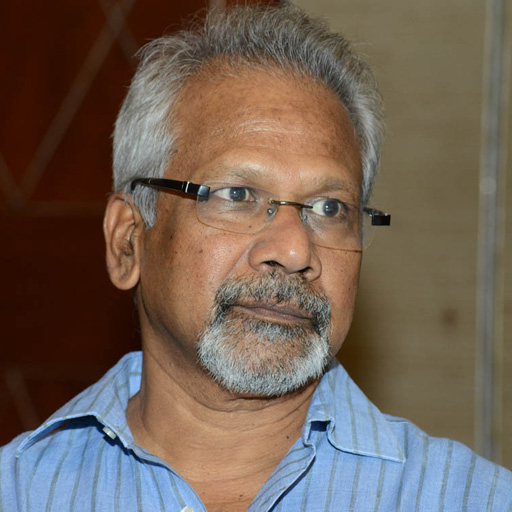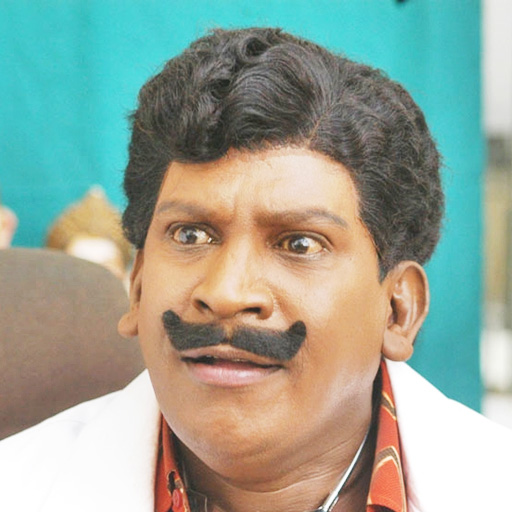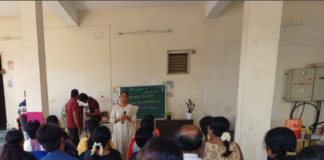Introduction
Mental health refers to the cognitive, behavioral and emotional wellbeing of a person. It is the part of us that makes us who we are and helps us relate to others in a social way. According to World Health Organisation (WHO), mental health is: “…a state of wellbeing in which the individual realizes his or her own abilities can cope with the normal stressors of life can work productively and fruitfully, and is able to make a contribution to his or her community.” WHO emphasizes that mental health is not merely the absence of mental disorder.
WHO’s 2017 report estimates that 7.5% of India’s population suffers from anxiety and depressive disorders, that is, about 94 million people. Most cases are untreated as they are not even recognized as something that needs medical/clinical attention. Also, there is a huge need-supply deficit when it comes to the availability of efficient psychiatric services, 1 psychiatrist for 2-3 lac patients.
The ones who do receive treatment are subjected to something called “polypharmacy.” It means overmedication or the indiscriminate use of drugs. In our country, due to low medical literacy among the general population, poor doctor-patient relationships and lack of informed consent, this problem of polypharmacy or overmedicating patients to control their symptoms, is having grave results. An online survey conducted by PGIMER, Chandigarh reveals about 25-40% of psychiatrists indulge in overmedicating their patients.
What polypharmacy effectively achieves is it makes zombies out of the mentally ill, dazes and deskills them, making them completely dependent on family and/or the state. According to Dr. Bhargavi Davar, Director of Bapu Trust, Pune, Indian psychiatry is rooted in the British era when the idea of dealing with mental illness was not to treat it but get it out of sight and curb beggary and homelessness resulting from untreated medical illness. She has been working at the grassroots level to help people with mental illness recover in a holistic manner by enhancing their emotional wellbeing.
Types of mental health illnesses
Mental illness is a broad term that encompasses a wide variety of conditions and factors which affect the way one thinks and feels. Mental illness is experienced by one in five individuals at some point in their lives.
There are about 300 different kinds of disorders listed in the Diagnostic and Statistical Manual of Mental Disorders- Fifth Edition (DSM-5). They range in severity and scope and can be broadly divided into mood disorders (such as depression and bipolar), anxiety disorders, personality disorders, psychotic disorder (schizophrenia), eating disorders, trauma-related disorders (PTSD), and substance abuse disorders. A few very common ones affecting the population today are listed below.
Bipolar Disorder
Bipolar disorder is a condition where people experience extreme moods. They experience periods of extreme lows (depression) followed by extreme highs (mania).
The characteristic of this condition is that unlike simple mood swings, the person experiences extreme moods for several weeks. This disorder is divided into two types namely type I & type II. People with type I disorder are likely to experience highs and lows for longer periods of time as compared to people with type II disorder.
Schizophrenia
Schizophrenia is a significant mental illness in which the patient has an altered sense of reality. It is part of a group of disorders known as psychosis. Schizophrenia affects people’s thoughts, perceptions and interferes with their ability to function at work or relate to other people. Contrary to popular belief, people with schizophrenia do not have a ‘split personality’.
The main symptoms are hallucinations and delusions. Hallucination refers to hearing and seeing things that are not there. Delusion is believing things that are actually untrue, such as believing you have a microchip implanted in your head. Symptoms can be range from confused thoughts, unusual behavior, to lack of motivation.
Depression
Depression is not the same as feeling ‘the blues’. It is more of a numb feeling where one feels sad for a number of weeks, is low in energy or motivation, and no longer enjoys doing things that once interested them. There are many different kinds of depression and their causes could be factors such as personality, family history, drug and alcohol abuse, and traumatic event experiences that can plunge a person into clinical depression.
Obsessive-Compulsive Disorder
OCD is a treatable anxiety disorder where unwanted negative thoughts become nagging to the point where it starts to take control of behaviors. For example, a person with OCD may need to check that the iron is switched off 20 times or wash their hands again and again and again. The characteristic symptoms are obsessive negative thoughts, images, or urge that repeatedly come to mind and seem uncontrollable, and again some repeated behaviors or rituals that seem impossible to resist doing. Generally, patients are aware of their abnormal behaviors, urges, and compulsive thoughts. They feel ashamed and hide it instead of seeking treatment.
Clinical Psychosis
Psychosis refers to an altered sense of reality. The patient experiences hallucinations and delusions, hearing voices and believing things about themselves and others that are simply not true. Psychosis may be caused by mental illness, severe depression, drug-induced, or can be in response to a stressful event.
Common Symptoms that are a BIG RED FLAG
Even though there are distinguishing characteristics of each mental illness, some symptoms are common. When experienced over a prolonged period of time, like weeks on end, these should be considered as a red-flag and require our immediate attention. A list is as below.
- Insomnia or oversleeping.
- Not eating enough or overeating.
- Overindulgence in smoking, drinking, or drugs.
- Fatigued even with enough hours of sleep.
- Numbness or lacking empathy.
- Feeling hopeless, helplessness and lost.
- Forgetfulness, irritability, unexplained anger bursts, anxiety, sadness, fright, and constant negative thoughts.
- Unable to carry out day to day activities
- Thoughts of harming oneself or others
- Hearing voices in your head that you cannot stop
Importance of mental health
Our mind is our biggest asset. Losing one’s mind is akin to losing oneself. Having said that, mental illness should be treated like any other illness and given the necessary support and treatment the patient needs to get back to normalcy. Even though it may seem terrorising, mental illness is very treatable with adequate social support and clinical help.
The first response of the family and friends of a mentally ill patient is shame and alienation. This is because of the social stigma attached to it. In the olden days, there was very little available in terms of medical treatment for mental illnesses, and hence the meager chance of recovery.
Today with the advancement of medical sciences in all fields, we have more and more clear diagnoses and treatments available and a much better chance of recovery. There are a host of allied services available as well that are much needed. For example, counseling, group therapies, psychological support, and various support groups to help family and friends cope with the illness and recovery process.
It is crucially important that patients have adequate family and social support. The process of recovering and assimilating back into society as a contributing member is a long drawn one.
The first thing need is acceptance of the condition and not denial, rejection, and alienation. The next step would be to seek out treatment and counsel. Strict adherence to treatment and therapies is non-negotiable. Families need the support of one another and need to reinforce their confidence in one another. With help, one can recover and get back their life. Even if there are considerable losses along the way, gaining the person back is worth the effort.
It is said that a good healthy mind lives in a healthy body. A physically active person is less likely to get trapped into depression or succumb to stress but will find a way out and forward from difficult situations. It is a known fact that exercise releases endorphins (happy hormones) in our bodies that combat stress-related disorders. Of course, an exercise in itself is not enough. Our food choices also play a role in our physical and mental wellbeing. For example, high sugar foods may give us an instant rush of satisfaction but it’s a slow and sure killer. They cause diseases like diabetes and eventually other related heart, kidney, nervous and bone diseases. Eating a healthy balanced diet of fruits, vegetables, proteins, and whole grains will serve us, in the long run, to keep us mentally and physically fit.
Mental Health Problems can be treated and CURED
Mental illness like any other illness is treatable. As intimidating as it may seem when or one of our loved ones is affected by it, there is no reason to despair. With adequate help and attention, one can be cured of the illness. Yes, it does call for treatment for an extended period of time and support from all quarters. Today there is a host of professional help available.
First of all, one needs to find the right psychologist, not necessarily an expensive one. Correct diagnosis and education with regard to the diagnosed condition are necessary so one is aware of what they are dealing with. This in itself may take some time. Also, when choosing a therapist, one should feel comfortable and be confident that the therapist is capable of listening to what you have to say and understands the life circumstances that have shaped you.
Psychiatric medications do not cure the condition on their own but what they do is help cope with and improve the symptoms. Compliance with medication and regular consultation with the therapist are essential. Over a period of time, depending on the patient’s response, medications should be lowered as some of the psychiatric medications can become addictive.
There are varied services available like psychotherapists, family counseling, social group help, and group activities. Psychotherapy would include cognitive behavioral therapy, exposure therapy, dialectical behavior therapy, etc. Psychotherapy is basically talking therapy where the aim is to enable patients to understand their feelings and behaviors and help them cope with their difficult situation in an adaptive way. Getting a better understanding of their condition and receiving acceptance and support, a cooperative patient will often report positive results. The treatment depends on the type of mental illness, its severity and what works best for the patient. In many cases, a combination of treatments will work best.
If one has mild symptoms (like mild anxiety or depression) or well-controlled symptoms, treatment from a general physician may be sufficient. However, often a team approach is necessary to make sure that patient’s psychiatric, medical and social needs are being adequately addressed and met. This is especially important for severe mental illnesses such as schizophrenia. Also, multiple sessions of therapy are required before some substantial results can be seen and one needs to go all the way through to a full recovery.
Hospitals for treating Mental Health Diseases in Chennai
M.M.C. & Rajiv Gandhi Government Hospital
EVR Salai, Chennai 600003
Website: http://www.mmc.ac.in/mmc/
Stanley Medical College & Hospital
No. 1, Old Jail Rd, Old Washermanpet
Chennai, Tamil Nadu 600001
Website: http://www.stanleymedicalcollege.ac.in/stanleymedicalcollege/
Kilpauk Medical college
822, Poonamallee High Rd, Near Ega Theatre,
Kilpauk, Chennai, Tamil Nadu 600010
Website: http://www.gkmc.in/
Mental Health Clinics in Chennai
WOW – Mind & Behavioural Clinic
New No.20, Old No.28/1
Dr, Muniappa Rd, Kilpauk
Tamil Nadu 600010
Website: http://www.winorwin.in/
Institute of Mental Health
Medavakkam Tank Road, Kilpauk
Chennai, Tamil Nadu 600010
http://www.tnhealth.org/directorate/imh.htm
Manashasthra Integrated Mind Care
No: 284A, Mettukuppam Road Anna Industrial Estate,
Porur, CMDA Colony, Vanagaram
Chennai, Tamil Nadu 600095
Website: http://www.manashasthra.com/
Serene Life Hospital
86/2A, 14/4C, 1st Floor, Kanniamman Nagar Main Road
Maduravoyal, Earikarai, Vanagaram
Chennai, Tamil Nadu 600095
Website: https://serenelifehospital.org/
Mind Zone
58/2, 1st Ave, Shastri Nagar, Adyar
Chennai, Tamil Nadu 600020
Website: http://mindzone.in/
PuTHOLI Health Care
61/1, Poosala Gangu St, Egmore
Chennai, Tamil Nadu 600008
Website: http://www.putholihealthcare.com/
Dr Prabhakar Thyagarajan
Greams Road, 21, Kalyanapuram St, Kamaraj Nagar, Choolaimedu
Chennai, Tamil Nadu 600006
Mental Health Clinic
No.50/18-A, (Near Sangam Cinema Theatre)
Flowers Road, Kilpauk
Chennai, Tamil Nadu 600010
Conclusion
In conclusion, mental health illness needs as much care and support as any other and is treatable. If the caregiver takes the time and effort to educate oneself about a given illness, one can be better equipped to deal with the illness and would cooperate with the treatment. Recovering from mental illness is a unique and personal process for each individual. The aim is to empower the individual to eventually actively participate in their own care.
From the perspective of the patient, recovery would mean gaining and retaining hope, a positive sense of self, acquiring personal autonomy and social identity, understanding one’s abilities and disabilities, and engaging in active life as per one’s expectations. As in case of any illness, mental health conditions need proper acceptance, diagnosis and treatment. Support from family and friends goes a long way incomplete recovery and rehabilitation of patients and education to bust the fears and myths around mental illness is a much needed first step.



